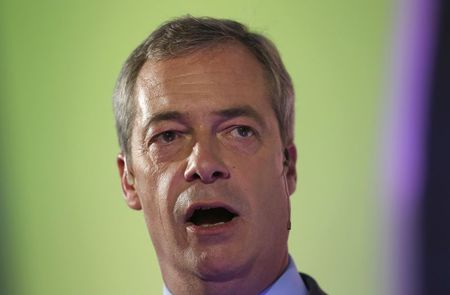By Paritosh Bansal and Jennifer Ablan
NEW YORK (Reuters) - Bill Gross' abrupt departure from Pimco, the giant bond firm that he co-founded more than four decades ago, was preceded by months of clashes between the star investor and the firm's executive committee that got progressively worse, according to sources familiar with the situation.
Tensions have been building within Pimco, the Newport Beach, California-based asset manager with about $2 trillion under management. Co-Chief Investment Officer Mohamed El-Erian, Gross's long-time heir-apparent, made an acrimonious exit in January. The flagship Total Return Fund suffered 16 straight months of outflows. The wrangling and the underperformance grated on the executive committee, including Chief Executive Douglas Hodge.
"While we are grateful for everything Bill contributed to building our firm and delivering value to PIMCO's clients, over the course of this year it became increasingly clear that the firm's leadership and Bill have fundamental differences about how to take PIMCO forward," Hodge said in a statement on Friday.
As Gross, known as the "Bond King" within the industry, butted heads with colleagues, the clashes got worse. In recent days, about five portfolio managers told the executive committee that they would quit if Gross stayed, the sources said.
Gross himself threatened repeatedly to quit, letting management know that he had been looking around for a role elsewhere. Jeffrey Gundlach of DoubleLine, Gross' arch rival and the closest contender for the Bond King crown, said in an interview on Friday that the investor approached him about a possible role early last week.
Gundlach said he met with Gross last week at Gundlach's house in Los Angeles. The two discussed the possibility of Gross joining Gundlach's DoubleLine, but Gundlach said he wasn't willing to share direction of the firm with Gross.
"I am CEO of the firm. We talked about working together, but I was never going to be the 'co-guy.' I am CEO. That was never going to happen," Gundlach said.
In recent days, when Gross again threatened to quit, the executive committee decided to accept the resignation, one of the sources said.
The firm had already put a succession plan in place, choosing Deputy Chief Investment Officer Dan Ivascyn as the successor. Allianz SE (DE:ALVG), the firm's German parent, had given its blessing. An announcement of Gross' ouster had been prepared, and was set to be announced as soon as Saturday, the source said.
Then, Gross sprung a surprise.
On Friday morning, Gross quit Pimco to join asset manager Janus Capital Group (N:JNS), run by his former Pimco colleague Richard Weil. Gross will manage the Janus Global Unconstrained Bond Fund
"It is the right thing," Gundlach said of Gross's move to Janus. "Now he can perform better because he isn't managing a lot of money."
Gross didn't immediately respond to requests for comment.
Pimco said it had a succession plan in place and that its management board would confirm a new chief investment officer shortly.
Gross' abrupt departure climaxes a drama that has riveted industry executives, investors and rivals over the past year. It raises questions about the future performance of the firm, which counts tens of thousands of ordinary Americans and major institutions including the CalPERS pension fund as investors in its mutual funds, exchange-traded funds and other products.
U.S. Treasuries prices fell on Friday, Allianz slipped more than 6 percent in German trading and Janus soared more than 35 percent.
"I think people are concerned that Pimco is going to have to liquidate, so there is some pre-selling going on ahead of the fact that they may have to do some selling," said Tom di Galoma, head of rates and credit trading at ED&F Man Capital Markets.
Pimco has been stressing in meetings with its investors that the company had several people who could succeed Gross and that he would be playing a smaller role in the firm's investment and management decisions in the future, said Karissa McDonough, a fixed income strategist at People's United Wealth Management in Burlington, Vermont, who met with Pimco representatives in early September.
"They were trying to reassure us by driving home the point that they're not so dependent on Bill Gross anymore," she said.
Gross walks away without severance pay. There are none of the usual contractual obligations in his departure either, the source said. There is no non-compete agreement nor a "gardening leave" cooling off period before he can start to work at Janus, the source said.
TROUBLE IN NEWPORT BEACH
The first signs of real trouble at Pimco came in January, when El-Erian left the firm and the acrimony spilled out into the open.
On Feb. 24, the Wall Street Journal published a report describing how El-Erian's previously close relationship with Gross had soured as the firm's investment performance deteriorated last year. Then Gross told Reuters that his one-time lieutenant was trying to "undermine" him, and that he had "evidence" El-Erian "wrote" the Journal article.
After El-Erian's exit, Pimco promoted six portfolio managers, including Ivascyn, to deputy chief investment officer roles and revamped the investment committee, positioning them as possible successors to Gross.
But the new structure failed to stem a steady exit of investors from the Total Return Fund, which until today was managed by Gross. Cash outflows began last year due to weak returns and the fund declined 1.9 percent in 2013, its worst performance in nearly two decades. El-Erian's exit exacerbated investors' unease.
Earlier this week, Pimco said the U.S. Securities and Exchange Commission is investigating whether it inflated the returns of its Total Return Exchange-Traded Fund (P:BOND), also managed by Gross.

One of the sources said the SEC investigation, which is also into how securities were allocated between the mutual fund and the ETF, was not the trigger for Gross' departure.
(Additional reporting by David Randall. Editing by John Pickering)
